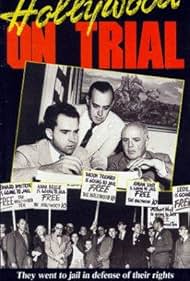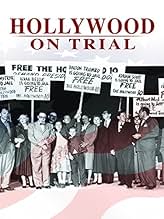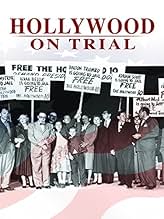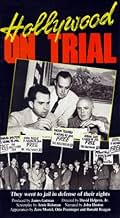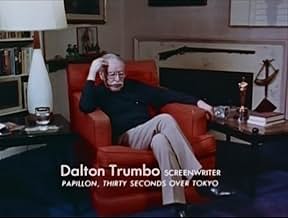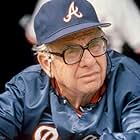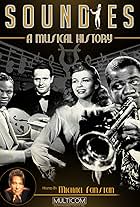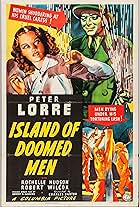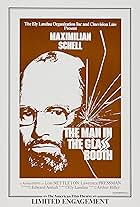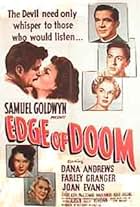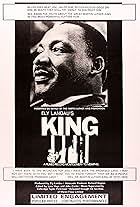"Hollywood on Trial" presents a detailed account on one of the darkest and most shameful periods of Hollywood history with the red scare and the House of Un-American Activities Committee investigation on writers, directors, actors and others who were considered subversive and sympathizers of the Communism. Narrated by the great John Huston, the documentary gives us an insightful chronology of events about the committee's works, from the Hollywood Ten trails and imprisonment, to the loud hearings of the 1950's involving not only the persecuted figures but also friendly witnesses of the committee who helped them by denouncing their friends and colleagues on the industry in order to whether keep the Communists away from the movies or to guarantee their future safe in the film business by not being blacklisted.
David Helpern's film was released in 1976, same year Martin Ritt's "The Front" introduced the period to new audiences with a story focusing a persecuted writer, played by Woody Allen, who continues to write his movies, despite being blacklisted, by asking his friends to be his front and take credit for his productions. A year before both movies, the House of Un-American Activities ceased their works and by that time many of the people imprisoned due to their investigations and prosecutions already had ended their jail sentences but Hollywood was still touchy in remembering that era, with only a few notable individuals returning their careers back on track.
Interviewed here are some of the Hollywood Ten such as Dalton Trumbo, Ring Lardner Jr., Lester Cole (the whole group can be seen in "The Hollywood Ten" documentary, with some clips introduced here), a brief interview with Zero Mostel who was persecuted in real life and also plays a pivotal dramatical role in "The Front" - his interview was right on Ritt's film set; and there's also the voice from members of the committee, and Edward Dmytryk, film director who named names and continued his career in the 1950's to much acclaim. The first mentioned people are known for their bravery and courage while taking the fifth amendment and refusing to testify to the committee on personal and moral grounds, a true act of defiance that cost them deeply with years in jail and being shut out of Hollywood for a period, with many of them writing films with the use of a front (Dalton Trumbo wrote "The Brave One", won an Oscar but the award was given to the name who received the credits on screen, someone who didn't exist, actually. Many years later, the Academy gave him the award and stated him as the one who wrote the movie). Their testimony to the movie is the one that captures our attention for the details they provide about how they survived through this dark moment, how they were incredibly secure about their thoughts and actions, rarely frightened of the possibility of losing everything and go to jail for their freedom of speech. Even though, it's years later from all that, they never admit in the film about being Communists or sympathizers so it feels like a lot like "Guilty by Suspicion" (1991), a case where liberal figures were put along next to the Reds simply for defending positive ideals that weren't the norm back in the 1950's. Dmytryk, on the other side of the fence, isn't much passionate or compelling about why he acted that way, throwing his fellow colleagues into the mud. Kazan isn't even here.
Mr. Halpern's film is a great historical lesson to those who doesn't know anything or know very little about Hollywood's witch hunt, it presents facts and informations without overcharging the viewers with too much information, it's all very precise, amazingly rich in images of the period, the films responsible for scaring audiences about the perils of the URSS regime, plus the interviews in the 1970's. A must-see. 9/10
